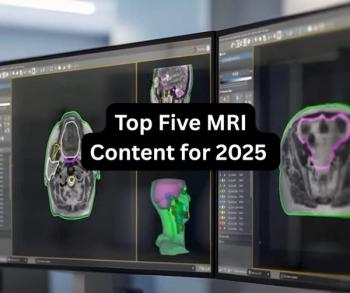
Race exerts little influence on CT calcium test results
Calcium deposits in coronary arteries provide a strong predictor for incidence of heart attack and cardiac disease, and detecting such deposits via CT scanning can help promote overall cardiac health in racially and ethnically diverse populations, according to a new study in March 28 issue of The New England Journal of Medicine.
Calcium deposits in coronary arteries provide a strong predictor for incidence of heart attack and cardiac disease, and detecting such deposits via CT scanning can help promote overall cardiac health in racially and ethnically diverse populations, according to a new study in March 28 issue of The New England Journal of Medicine.
The coronary calcium study, the largest involving CT scanning to date, is the first to include African American, Hispanic, and Chinese as well as white subjects, according to a release.
"Despite the fact that minority ethnic groups have lower amounts of coronary calcium, calcium is at least as good a predictor in these groups as it is in whites,'' said lead author Dr. Robert Detrano, a professor of radiology at the University of California, Irvine.
For the study, Detrano and colleagues sampled 6722 men and women - 38.6% white, 27.6% black, 21.9% Hispanic, and 11.9% Chinese - with no history of cardiovascular disease. Participants were followed for an average of 3.8 years.
Researchers noted 162 coronary events during that time, including 89 myocardial infarctions or deaths from coronary heart disease.
The study found subjects with moderate calcium deposit amounts had more than a seven times greater risk of cardiac heart disease compared with those who had no coronary calcium buildup. Participants with large deposit amounts faced a 10 times greater risk.
Among the four racial and ethnic groups, a doubling of calcium score increased the risk of a major coronary event by 15% to 35% and the risk of any coronary event by 18% to 39%. No major differences among racial and ethnic groups in the predictive value of calcium scores were detected.
"One very important implication for myself and many others is that this is a valid method in Chinese (populations),'' Detrano said.
At press time, he was extending this research with work in China using CT and other imaging methods.
Sponsored by the National Institutes of Health, the study indicates that the coronary calcium score is not only a strong predictor of future heart disease but provides predictive information beyond that of standard risk factors.
For more information from the Diagnostic Imaging archives:
Newsletter
Stay at the forefront of radiology with the Diagnostic Imaging newsletter, delivering the latest news, clinical insights, and imaging advancements for today’s radiologists.













